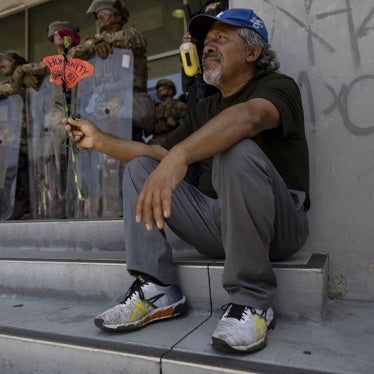African writers received the lion's share of this year's Hellman/Hammett grants, a clear indication of the hazards confronted by those in the writing profession on the African continent.
The Hellman/Hammett grants are given annually by Human Rights Watch to writers around the world who have been targets of political persecution. The grant program began in 1989 when the estates of American authors Lillian Hellman and Dashiel Hammett asked Human Rights Watch to design a program for writers in financial need as a result of expressing their views. This year's grants totaled $170,000.
In many countries, writers are threatened, harassed, assaulted, or thrown into jail merely for providing information from non-governmental sources. Governments often use military and presidential decrees, criminal libel, and colonial-era sedition laws to silence critics. As a result many journalists and writers are forced to practice self-censorship.
Short biographies of the 1999 recipients are available here.
Other recipients will remain anonymous because of the dangerous circumstances in which they are living. They include writers from Belarus, Cameroon, China, Eritrea, Pakistan, Sierra Leone, Tanzania, Togo, United States, and Vietnam.
The Hellman/Hammett grants are announced each spring. In the nine previous years of the program, more than 350 writers have received grants totaling more than one-and-a-half million dollars.
The Hellman/Hammett funds also make small emergency grants from time to time throughout the year for writers who have an urgent need to leave their country or who find themselves in desperate financial circumstances as a result of political persecution. Again, Sub-Sahara Africa is home to the most grantees. Among them are: Mark Chavunduka and Ray Choto from Zimbabwe; Edith Lianue Gongloe and Alphonos Onso Nyenuh from Liberia; Andrew Koromah, Kevin Lewis, Winston Ojukutu-Macauley, and David Tam-Baryoh from Sierra Leone.
For Further Information:
Marcia Allina, 212/216-1246
Carroll Bogert, 212/216-1244







